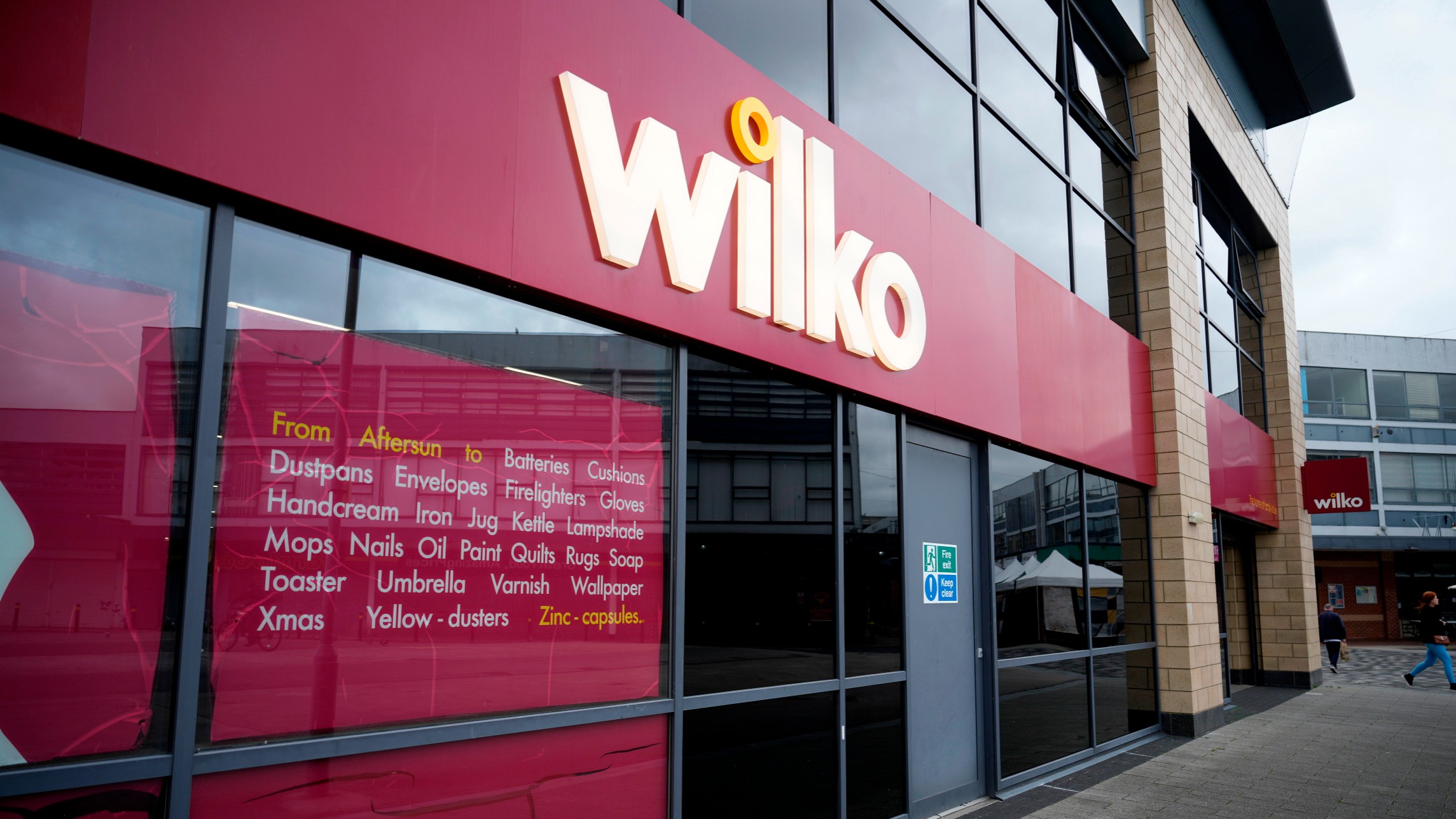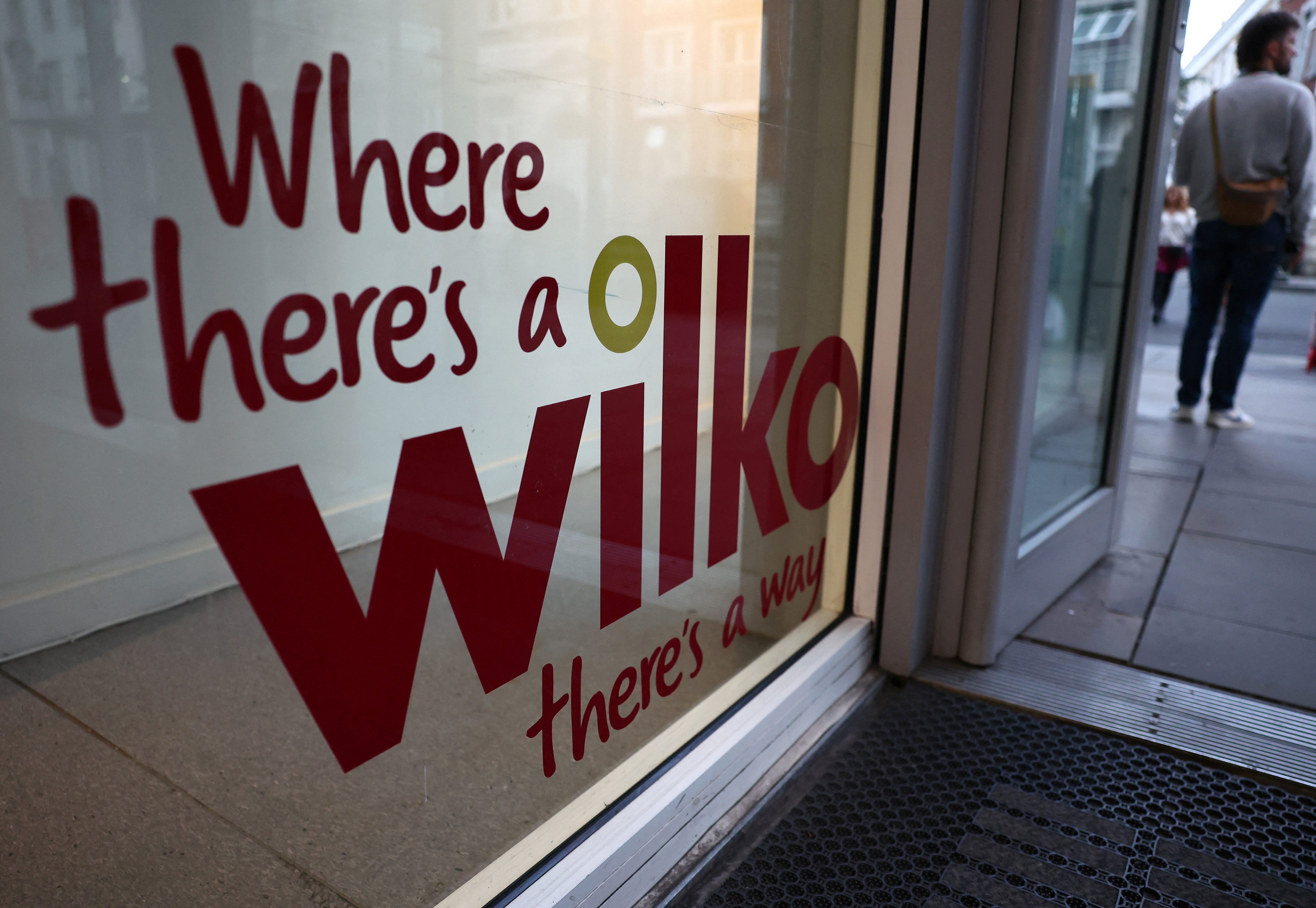UK Retailer Wilko’s Reign Comes To An Abrupt End: 12,500 Jobs At Risk!
UK Retailer Wilko succumbs to administration, downfall causes 12,500 jobs to be at risk.

UK Retailer Wilko’s Reign Comes To An Abrupt End: 12,500 Jobs At Risk!
Wilko, the renowned British homeware and household products discount retailer, recently went into administration, a stark result of the turbulent economic situation. The retailer’s inability to get emergency capital, along with a downturn in trading, has driven the company into a precarious position, risking the financial security of 12,500 employees as well as the running of its 400 places of business in the United Kingdom. Wilko’s probable demise serves as a stark reminder of the difficulties that the retail sector has been facing, underlining the importance of strategic adaptability along with sound financial management.
The Demise of an Icon- Wilko
Wilko’s demise serves as a sobering reminder that even long-established enterprises can succumb to relentless competition as well as economic constraints. The retailer expanded from a small hardware store in 1930s Leicester to a countrywide sensation with four hundred locations. Its development was intertwined with the advent of DIY culture, leveraging on the change from necessity-driven to leisure-driven consumerism.
The plot darkened, however, as shrewd rivals started to outwit Wilko in the past few years. The retail behemoth struggled with weak sales during the period of more nimble competitors, which were made worse by growing cash flow issues as well as inflationary pressures. The startling financial data is unmistakable: from a £4.3 million profitability in the previous fiscal year to a shocking £36.7 million loss prior to taxation for the fiscal year ending January 2022, Wilko’s balance sheet speaks loudly.

Missteps and Triumphs: A Duality of Choices
Wilko’s troubles were not only characterized by its financial difficulties, but also by a succession of tactical decisions that alternated between successes and failures. There are questions about the company’s choice to pay its owners hefty dividends in the face of impending bankruptcy. This apparent disregard for the wellbeing of the company’s stakeholders and employees in favor of financial rewards shows a lack of concern on the part of corporate leadership.
Despite its financial difficulties, Wilko made an effort to look for alternatives. Its decision to borrow £40 million from restructuring expert Hilco and sell its distribution unit to pay off debt was a good example of adaptability. However, in a retail environment that is undergoing rapid change, such measures might have been too little, too late.
Wilko’s descent into administration against a backdrop of economic instability is a depressing example of the hard realities of the contemporary retail sector. The company has a long history and a sizable client base, but its difficulties navigating the perilous waters of inflation, rising interest rates, along with economic uncertainty illustrate how vulnerable even well-known companies may be when faced with unforeseen difficulties.
A Struggle for Survival Amidst Economic Turmoil
Wilko’s dreadful situation sheds light on broader difficulties faced by UK retailers, where the perfect combination of high inflation as well as 14 straight interest rate hikes has had a negative impact on consumer purchasing. Wilko’s reluctance to do so indicates deeper underlying flaws that need to be addressed. Other giants of retail like B&M, Poundland, Aldi, and Lidl have succeeded in maintaining their resilience through these trying times. The shifting customer landscape necessitates a rethinking of corporate strategies to ensure long-term viability as seen by changing buying preferences along with digital transformation.

A Glimmer of Hope Amidst the Crisis
A glimmer of light appears amid the clouds of doom: the possibility of saving a portion of the Wilko’s retail network. Between 200 and 300 stores might be able to be salvaged through negotiations with prospective buyers, according to administrators from PricewaterhouseCoopers (PwC) who are in charge of navigating these treacherous seas. Rival discount businesses as well as potential investors have shown interest, reigniting hope for Wilko’s future in some capacity.
Therefore, a small ray of optimism regarding Wilko has emerged with the selection of PwC as administrators as negotiations with prospective owners are in progress. Both the staff and customers might find some comfort in the retailer’s ability to maintain shop operations while remaining in their jobs for the time being. The foreboding PwC warning that store closings and layoffs may become inevitable highlights the seriousness of the problem, though. Wilko’s approaching demise serves as a wakeup call for industry stakeholders to promote creative solutions that can withstand the storm of economic turbulence.
Initially, Wilko will continue to trade all stores without any immediate redundancies . . . if buyers for some or all of the group are not found, it is likely that store closures and redundancies will follow.
Lessons Learned: Management and Adaptation
Mark Jackson, the chief executive of Wilko, acknowledges that efforts were made to look into every possibility for keeping the company afloat. However ultimately, the weight of the economic demands won out. Leaders should reflect and draw lessons from this terrible incident after the demise of a company with a history of such significance by carefully reviewing management decisions as well as strategy. A sharp reminder that capable leadership is essential in navigating difficult economic times is provided by the GMB union’s criticism of weak management’s part in the company’s demise.
The demise of Wilko sends a loud message to the retail sector. It serves as a warning about the effects of complacency in a market that values flexibility and innovation. The demise of a company that once served as a symbol of British retail highlights the necessity for companies to adapt to change, embrace growth and development, and prioritize the needs of its stakeholders and employees over short-term financial advantages.
A Wider Lens: Geopolitical and Macroeconomic Factors
Wilko’s situation is not unrelated to the larger economic landscape. The effects of Brexit are still being felt in the UK as it struggles with inflation rates that are higher than those of its G7 competitors and multiple interest rate increases. Retail dynamics are impacted by the ambiguity surrounding trade ties, supply chains, and customer mood. Wilko’s failure may be a sign of more serious structural problems with the economy, calling for a more thorough investigation.
Various people have responded to the news of Wilko’s collapse. While Wilko’s rivals B&M, Poundland, Aldi, and Lidl have survived the crisis, it is unclear what set these companies apart from Wilko. Industry analysts cite elements like improved risk management, creative tactics, as well as skilful use of digital platforms. These responses highlight the value of flexibility and agility in the rapidly shifting retail environment, where companies must adapt or risk becoming obsolete.

Navigating the Retail Landscape of Tomorrow
Wilko’s bankruptcy ought not to be viewed in a state of isolation, but rather as a mirror reflecting the larger difficulties that retailers are currently facing. Businesses must be proactive, agile, as well as resilient in the midst of economic uncertainties as the industry experiences dramatic shifts. The demise of Wilko serves as a grim reminder that no company is exempt from economic forces, irrespective of its history. In order to create a more sustainable retail environment for the future, this episode emphasizes the pressing requirement for the development of strategies, embracing innovation, along with harmonizing with shifting consumer patterns.
A cash flow crisis such as this will lead quickly to insolvency, irrespective of the underlying value of the business and its proposition. As access to readily available capital dries up because of wider macroeconomic conditions, we are likely to see more retail casualties.
– Vernon Dennis, restructuring and insolvency partner at law firm Howard Kennedy.
It is critical to remember to strike a balance even as arguments about the management position, innovation, and economic challenges take center stage. Businesses frequently have to make tough choices where maintaining jobs conflicts with being fiscally responsible. To handle such situations and remain current with changing consumer needs, retailers must come up with creative solutions. The failure of Wilko highlights the significance of this equilibrium and teaches companies to proactively rectify weaknesses that exist in their operational models.
The financial collapse of Wilko leaves a lasting impression on the retail sector as well as the overall economy. The interaction of managerial choices, changing consumer behavior, along with financial considerations has produced a complex environment where the previously established rules no longer remain valid. It is crucial to take into account the wider implications for employment, the economy, as well as the very essence of retail as conversations revolve on its collapse. In order to assure a sustainable future for both firms and employees, this event asks for a comprehensive approach to reinventing company strategy, bolstering against economic volatility, and embracing innovation.



